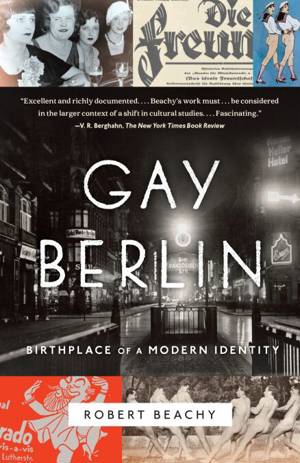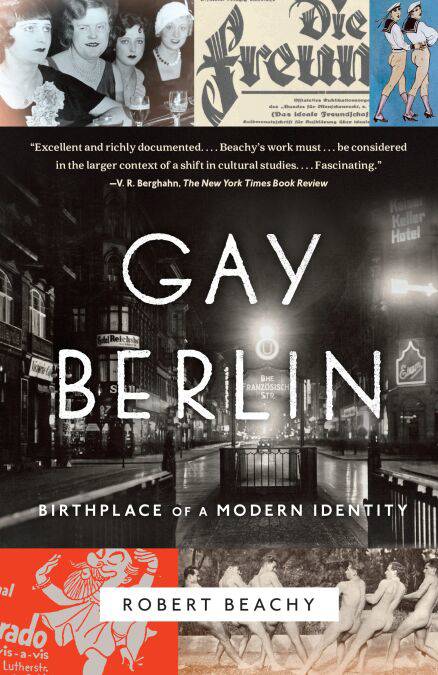
- Afhalen na 1 uur in een winkel met voorraad
- Gratis thuislevering in België vanaf € 30
- Ruim aanbod met 7 miljoen producten
- Afhalen na 1 uur in een winkel met voorraad
- Gratis thuislevering in België vanaf € 30
- Ruim aanbod met 7 miljoen producten
Zoeken
€ 9,23
+ 9 punten
Uitvoering
Omschrijving
An unprecedented examination of the ways in which the uninhibited urban sexuality, sexual experimentation, and medical advances of pre-Weimar Berlin created and molded our modern understanding of sexual orientation and gay identity.
Known already in the 1850s for the friendly company of its “warm brothers” (German slang for men who love other men), Berlin, before the turn of the twentieth century, became a place where scholars, activists, and medical professionals could explore and begin to educate both themselves and Europe about new and emerging sexual identities. From Karl Heinrich Ulrichs, a German activist described by some as the first openly gay man, to the world of Berlin’s vast homosexual subcultures, to a major sex scandal that enraptured the daily newspapers and shook the court of Emperor William II—and on through some of the very first sex reassignment surgeries—Robert Beachy uncovers the long-forgotten events and characters that continue to shape and influence the way we think of sexuality today.
Chapter by chapter Beachy’s scholarship illuminates forgotten firsts, including the life and work of Dr. Magnus Hirschfeld, first to claim (in 1896) that same-sex desire is an immutable, biologically determined characteristic, and founder of the Institute for Sexual Science. Though raided and closed down by the Nazis in 1933, the institute served as, among other things, “a veritable incubator for the science of tran-sexuality,” scene of one of the world’s first sex reassignment surgeries. Fascinating, surprising, and informative—Gay Berlin is certain to be counted as a foundational cultural examination of human sexuality.
Known already in the 1850s for the friendly company of its “warm brothers” (German slang for men who love other men), Berlin, before the turn of the twentieth century, became a place where scholars, activists, and medical professionals could explore and begin to educate both themselves and Europe about new and emerging sexual identities. From Karl Heinrich Ulrichs, a German activist described by some as the first openly gay man, to the world of Berlin’s vast homosexual subcultures, to a major sex scandal that enraptured the daily newspapers and shook the court of Emperor William II—and on through some of the very first sex reassignment surgeries—Robert Beachy uncovers the long-forgotten events and characters that continue to shape and influence the way we think of sexuality today.
Chapter by chapter Beachy’s scholarship illuminates forgotten firsts, including the life and work of Dr. Magnus Hirschfeld, first to claim (in 1896) that same-sex desire is an immutable, biologically determined characteristic, and founder of the Institute for Sexual Science. Though raided and closed down by the Nazis in 1933, the institute served as, among other things, “a veritable incubator for the science of tran-sexuality,” scene of one of the world’s first sex reassignment surgeries. Fascinating, surprising, and informative—Gay Berlin is certain to be counted as a foundational cultural examination of human sexuality.
Specificaties
Betrokkenen
- Auteur(s):
- Uitgeverij:
Inhoud
- Aantal bladzijden:
- 336
- Taal:
- Engels
Eigenschappen
- Productcode (EAN):
- 9780385353076
- Verschijningsdatum:
- 17/11/2014
- Uitvoering:
- E-book
- Beveiligd met:
- Adobe DRM
- Formaat:
- ePub

Alleen bij Standaard Boekhandel
+ 9 punten op je klantenkaart van Standaard Boekhandel
Beoordelingen
We publiceren alleen reviews die voldoen aan de voorwaarden voor reviews. Bekijk onze voorwaarden voor reviews.







